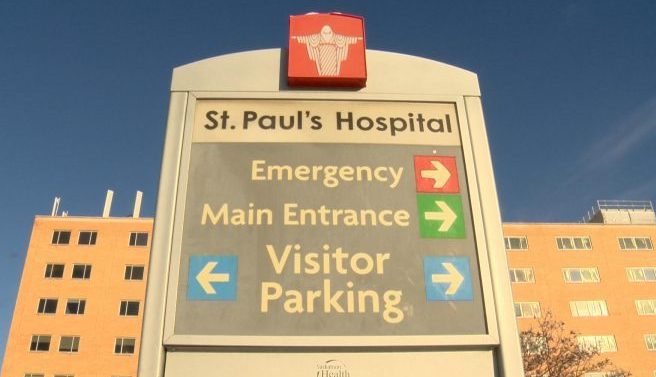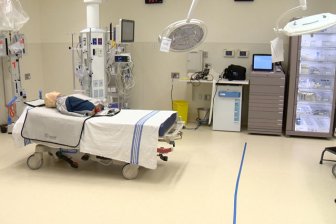Saskatchewan’s official Opposition is calling on the government to invest in health care infrastructure as hospital staff grab hold of their desks to prevent themselves from rolling down sloped floors.

“It would be almost funny if it wasn’t so ridiculous.”
A freedom of information request obtained by the Saskatchewan NDP revealed infrastructure issues including leaking ceilings, lifted floor tiles and electrical problems at St. Paul’s Hospital and Royal University Hospital (RUH) in Saskatoon.
The NDP is calling on the province to invest in upgrading health care facilities across Saskatchewan.
“It is doing us no good to wait until these facilities are in such a state of disrepair that they’re no longer even usable,” Meili said.

Get weekly health news
“I really haven’t seen anything that suggests that any measures this government is interested in taking are anywhere near proportional to the urgency of the need.”
A 2013 health facility assessment found the RUH needs $140 million in upgrades, while St. Paul’s needs a $94 million boost.
The 2019 provincial auditor’s report says deferred maintenance costs for Saskatchewan’s health care facilities total $3.3 billion, including $1.5 billion in maintenance expenses for facilities in the Saskatoon region.
“There have been great opportunities to make those investments,” Meili said. “The longer you wait, the worse that problem gets.”
In an emailed statement, a spokesperson for the health ministry said the government has invested about $1.6 billion in upgrades to Saskatchewan’s health system since 2007, including $346 million in infrastructure maintenance.
“Many health care facilities in Saskatchewan have suffered from a lack of investment in infrastructure maintenance over the past several decades,” the statement reads. “Governments have to make difficult choices when allocating limited resources among many competing priorities.”
The province gives infrastructure maintenance funding to the SHA every year, which allocates the money as needed, the statement says.
“We work really hard to make sure that we do apply the investment that we get from the government on the highest, most critical needs in order to make sure that our facilities are safe and operational,” said Derek Miller, the SHA’s executive director of infrastructure management.
He said about 100 of the maintenance requests highlighted in the FOI are outstanding, including the sloped floors at St. Paul’s Hospital.
The SHA receives about 2,000 maintenance requests a month and prioritizes them based on the affected area, patient impact, and potential disruption to health care services.
If elected in October, Meili said an NDP government would dedicate significant funding to the health care infrastructure deficit but didn’t say exactly how much.
He urged the Saskatchewan Party to fix the most pressing problems first, using the province’s workforce to get the job done.
“They’ve been completely asleep at the wheel when it comes to allowing this to continue and to get worse,” he said.
The infrastructure deficit exacerbates problems in an already-overloaded health care system, Meili said.
“When you add infrastructure problems, leaks, et cetera to that level of patient pressure, it’s a very dangerous recipe,” he said.




Comments